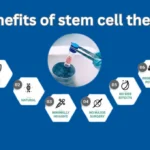
Angiogenesis: The Vital Process of Blood Vessel Growth and Its Impact on Health
Angiogenesis, the formation of new blood vessels from existing ones, is a cornerstone of human physiology and pathology. This intricate process is pivotal not only in normal body functions such as wound healing and reproduction but also plays a critical role in disease progression, particularly in cancer and ischemic diseases. Understanding angiogenesis provides insights into potential therapeutic targets and diagnostic approaches, making it a vital area of medical research.
The Biological Basis of Angiogenesis
At its core, angiogenesis involves the proliferation and migration of endothelial cells, which line the interior surface of blood vessels. These cells respond to various signals, such as hypoxia or the presence of growth factors like VEGF. The process can be split into several stages: the activation of endothelial cells, degradation of the extracellular matrix, migration and proliferation of cells, and finally, the formation of tubular structures that mature into fully functional blood vessels.

The Role of Growth Factors and Cytokines
Growth factors such as VEGF, Fibroblast Growth Factor (FGF), and Platelet-Derived Growth Factor (PDGF) are among the primary drivers of angiogenesis. These molecules bind to specific receptors on endothelial cells, initiating a cascade of signals that promote cell division and migration. Cytokines also play a supportive role, modulating the immune response and facilitating the complex interplay between cells during the formation of new vessels.
Angiogenesis in Health: Wound Healing and Reproduction
In the context of wound healing, angiogenesis is crucial for delivering the necessary oxygen and nutrients to repair tissue. During reproduction, particularly in the development of the placenta, angiogenesis ensures adequate blood flow to the growing fetus. The regulated growth of vessels is, therefore, essential for organ development and repair.
Angiogenesis in Disease: Cancer and Beyond
Perhaps the most studied aspect of angiogenesis is its role in cancer. Tumors hijack this natural process to secure a blood supply, allowing them to grow and metastasize. Inhibiting tumor angiogenesis has become a strategic therapeutic approach in oncology, with drugs like Bevacizumab designed to block the action of VEGF.
Moreover, diseases like diabetic retinopathy involve pathological angiogenesis, where abnormal blood vessel growth can lead to vision loss. Understanding the mechanisms of angiogenesis has led to targeted treatments like stem cell therapy and other that help manage or reverse such conditions.
Benefit of Angiogenesis
| Benefit | Description |
|---|---|
| Wound Healing | Angiogenesis delivers oxygen and nutrients to injured areas, promoting tissue repair. |
| Growth & Development | New blood vessels are essential for the growth of organs and tissues during development. |
| Oxygen Supply | Angiogenesis expands the blood vessel network, ensuring adequate oxygen reaches all tissues. |
| Reproductive Health | Plays a role in the menstrual cycle and the development of the placenta during pregnancy. |
Therapeutic Angiogenesis and Anti-angiogenic Therapy
In cardiovascular diseases such as ischemic heart disease, therapeutic angiogenesis seeks to improve blood flow through the growth of new vessels. Conversely, anti-angiogenic therapy, which involves the use of agents like Thalidomide, aims to inhibit the excessive growth of blood vessels in diseases like cancer and macular degeneration.
Advanced Diagnostic Tools
Medical imaging techniques, including angiograms and Doppler ultrasounds, are crucial in assessing vascular health and the effectiveness of angiogenesis-related treatments. These tools help clinicians visualize blood flow dynamics and the structure of blood vessels, aiding in more accurate diagnoses and treatment plans.
Future Directions in Angiogenesis Research
The future of angiogenesis research holds promise for novel therapeutic strategies and a deeper understanding of vascular biology. Advances in gene therapy and molecular biology could pave the way for precision medicine approaches that tailor treatments to individual genetic profiles and disease states.
Conclusion
Angiogenesis is a fundamental biological process with significant implications for health and disease. Through ongoing research and clinical studies, the potential to harness this process for therapeutic benefit continues to expand, offering hope for patients suffering from a range of conditions.











Pingback: The Main Types of Collagen: What You Need to Know - IRM Hospital